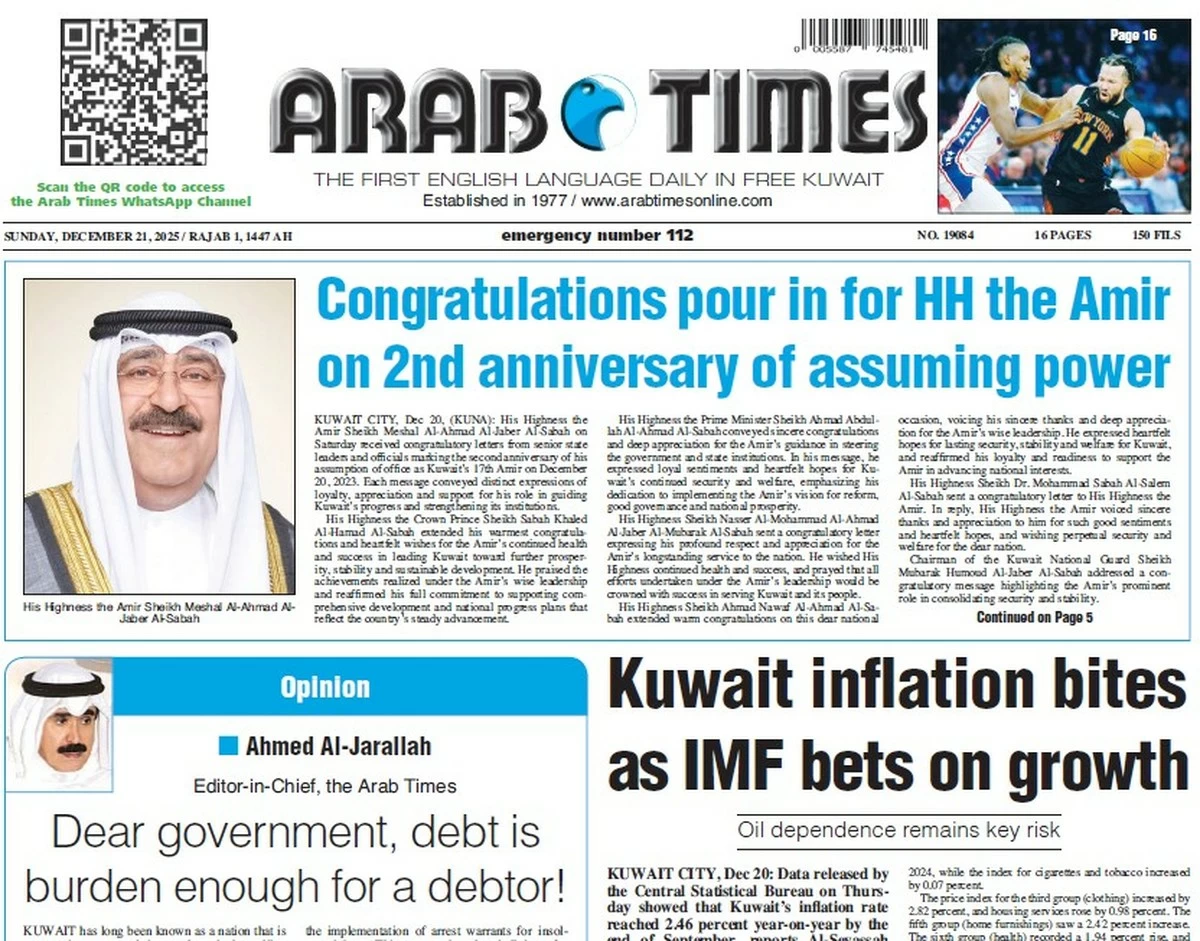19/11/2024
19/11/2024
LEBANON has long been admired by all Gulf nationals, and is considered as an oasis and a model of progress and development.
However, due to the negligence of warlords and the leaders of various political parties and movements, it became “stricken with the plague”, as the US Secretary of State Alexander Haig had described in the 1980s.
Despite this, the Gulf states continued to support Lebanon, with the hope that the country would recover and that the warlords would learn from their mistakes. They exerted efforts to rebuild the areas that were destroyed by the Israeli invasion in 1978.
Similarly, during the 1982 invasion, the Gulf nations extended the same support without hesitation.
In 2006, after the war, the Gulf states once again invested heavily in Lebanon’s reconstruction. Everyone saw the numerous banners expressing gratitude to the Gulf states, as well as the visit of the former Amir of Qatar Sheikh Hamad bin Khalifa to South Lebanon shortly after the conflict ended.
The GCC countries did not offer their support out of self-interest, as some other nations may have, but rather because they believed that the recovery of any Arab country is a matter of national interest for all Arabs, including the Gulf states, of course.
However, it is important to pause and consider whether all the funds provided were actually used for reconstruction, or if some were diverted into the accounts of Lebanese tycoons, with only a small portion allocated for rebuilding efforts.
Furthermore, we must also reflect on the information that has been leaked from investigations into Riad Salameh, the former governor of Lebanon’s Central Bank, and the 30-year financial mystery that has plagued Lebanon.
According to Riad Salameh, the majority of aid from the Arabian Gulf nations that arrived in Lebanon was first deposited into the Central Bank before being transferred to the accounts of party and sectarian leaders. These leaders then moved the funds to their overseas accounts in Switzerland, France, or the United States.
If we compare Salameh’s statements with those of some Lebanese leaders who have estimated the cost of reconstruction after the current war at around USD 45 billion, it becomes clear that a massive “fanfare” of wealth has been orchestrated by those who have profited from Gulf and Arab aid.
Indeed, much of this wealth has been used to build palaces around the world, while some of the funds have reportedly been channeled into terrorist operations targeting the Gulf states. As the Arab proverb goes, “Don’t poison the well from which you drink.”
The Gulf states have been trying to assist Lebanon since 1977, yet none of the Lebanese leaders, meaning the political elites and warlords, were genuinely interested in the well-being of their country. Instead, their focus remained on siphoning as much aid as possible to enrich themselves both locally and internationally.
In support of this, it was recently reported that Lebanese leaders sent roughly USD 380 billion overseas, despite the fact that, according to Salameh himself, Lebanon lacked the natural resources necessary to generate such wealth between 1992 and 2019.
Today, some Lebanese officials are claiming that the Gulf States should shoulder the responsibility of rebuilding what was destroyed, and that tours of their leaders will be organized to the Gulf states immediately after the war ends for this very reason.
Here, we are making a clear statement, far from any emotional attachment to Lebanon and its people, and echoing the popular Lebanese proverb: “I love you, my bracelet, but I cannot afford it.” In other words, the Gulf States are not a cash cow for Lebanese leaders.
They should not expect a single penny unless there is full transparency and accountability, to ensure that the funds are not diverted to fund militias or used to wage war against the Gulf States.
If the Lebanese truly wish to rebuild their country, it must be done under strict Gulf supervision. This should also mark the end of Lebanon’s involvement in foreign conflicts, so that Lebanon no longer serves as a proxy for Iran or any other party for sending fiery messages. Otherwise, as the saying goes, “they should remove their thorns by themselves.”



